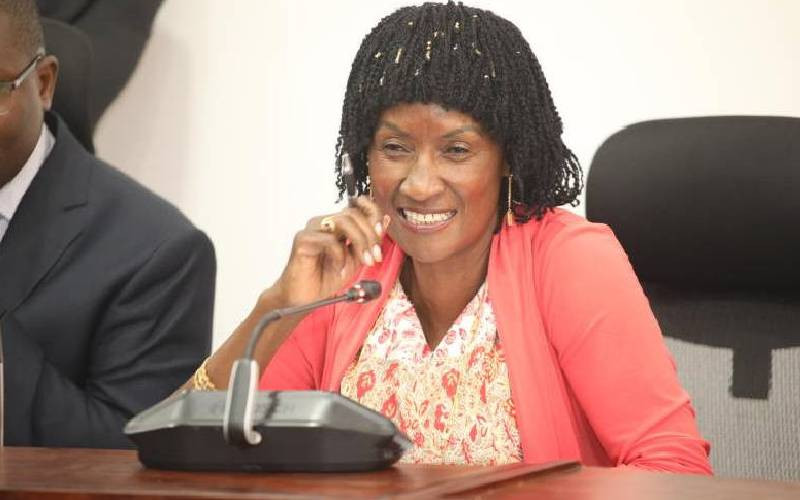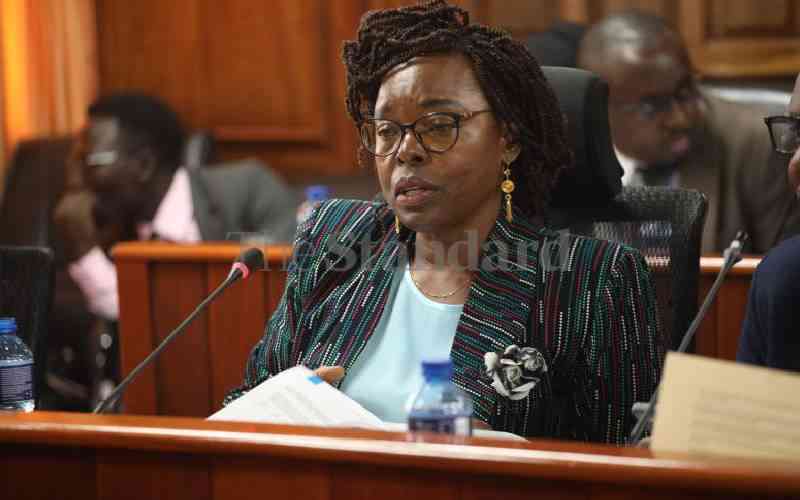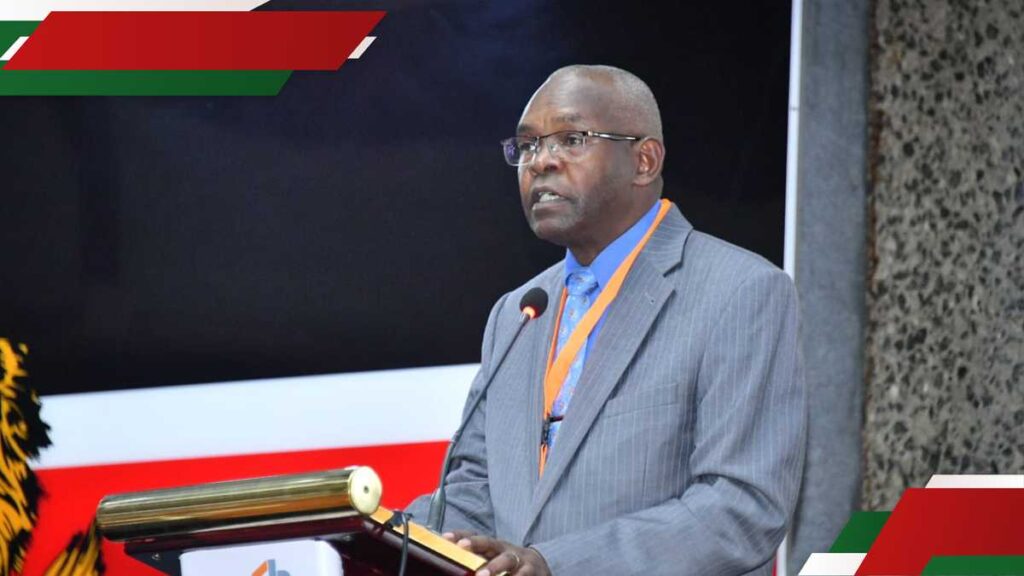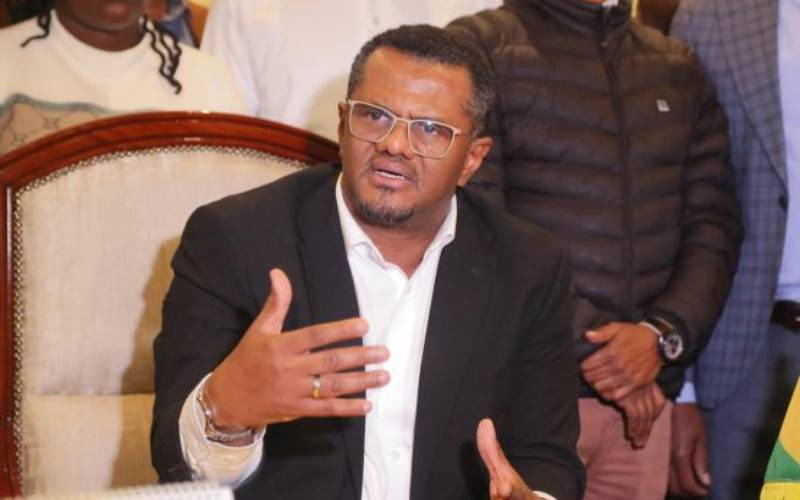To some, her departure marks the end of an error! To others, the conclusion of an era.
This is the complex and contentious legacy of Nancy Macharia’s tenure at the helm of the Teachers Service Commission (TSC).
Soft-spoken and often smiling, Dr Macharia has led the TSC as its Chief Executive Officer for nearly a decade.
Teachers who spoke to The Standard said Macharia pushed them to align by putting more emphasis on their paperwork, through performance appraisals, at the expense of actual classroom teaching.
Macharia’s first five years were particularly turbulent, defined by fierce opposition, especially, from teachers’ unions.
Critics have labeled her a master of “divide and rule” or characterised her leadership as ruthless while others argue she was simply fulfilling her mandate.
Reporters lamented her aloofness, citing her reluctance to respond to calls or texts.
Macharia will proceed on terminal leave this month, paving the way for the appointment of a new CEO.
Her tenure, however, will be remembered for decisions that sparked controversy and intense debate within the teaching fraternity, alongside landmark achievements that some hail as revolutionary.
Macharia assumed leadership of TSC in July 2015, bringing nearly three decades of experience within the commission.
Having joined as an assistant teacher and rose to the position of Director of Teacher Management, she was viewed as an insider well-acquainted with the institution.
During her tenure, Macharia oversaw critical initiatives, including the completion of two Collective Bargaining Agreements (CBAs) and the employment of over 100,000 teachers.
Yet, her administration was frequently marred by controversy.
Policies such as the delocalization of teachers and career progression guidelines were criticized as punitive and alienating.
At several points, Macharia faced intense opposition in Parliament while defending these policies.
Stay informed. Subscribe to our newsletter
While she was viewed as an underdog, her surprise power move that would stamp her legacy came in 2017 when the commission negotiated for the controversial 2017/2021 CBA.
Signed by both the Kenya National Union of Teachers (KNUT) and the Kenya Union of Post-Primary Education Teachers (KUPPET), the Sh54 billion agreement initially appeared to be a win for teachers.
However, what followed was one of the greatest rifts between teachers and their employer.
Critics, including KNUT’s then Secretary-General Wilson Sossion, termed the agreement punitive and suffocating, ultimately leading to the downfall of the once-mighty union.
Sossion became Macharia’s fiercest critic, accusing her of stripping the teaching profession of its nobility.
The fallout from the CBA gave rise to two contentious policies: Career Progression Guidelines (CPGs) and the Teacher Performance and Appraisal Development (TPAD) programme.
Introduced in 2017, the CPGs aimed to manage and promote teachers more systematically but faced staunch opposition from KNUT.
Similarly, TPAD, designed to retrain teachers, was viewed by many as overly demanding and punitive as it required every teacher to undergo retraining and would be issued with a practice certificate with a five year shelf life. This meant the teachers would be required to renew the practice certificate after every five years.
Teachers were also required to pay Sh6,000 each year that would cover, among other things, the cost of retraining.
In protest, Sossion issued a strike notice in January 2017 but TSC blocked the move in court.
However, following a court case challenging the continuous professional guidelines(CPG) the court ruled in favour of Knut, axing the CPG.
But this did not sit well with TSC as Macharia ordered a review of the payroll, excluding Knut members from salary increment on the third cycle of the 2018 pay deal.
She argued that TSC lacked a criteria to determine promotion of teachers under KNUT after the union opposed the policy in court.
This affected 103,624 tutors, who included principals, their deputies and senior teachers as their salaries stagnated while that of teachers not in the union was reviewed upwards.
Further, TSC threatened to recover benefits Knut members had enjoyed since 2017.
The aim was to put pressure on teachers to quit Knut.
Despite these challenges, Macharia’s supporters credit her with steering the commission through transformative changes that redefined Kenya’s education sector.
According to the TSC, between 2018 and 2023, some 168,389 teachers in the lowest serving job groups received automatic promotions from one job group to the other.
Educators in these categories are automatically promoted after three years of satisfactory service.
An additional 73,902 secured competitive promotions under the Continuous Professional Guidelines (CPG).
Macharia’s strong arm was evident when TSC introduced a feature on the teachers’ portal from where they could quit the union by clicking the “stop transaction(s)” icon.
It was detrimental to the already crumbling union as thousands of teachers abandoned the union so as to receive the pay rise.
The aftermath saw over 150,000 teachers quit the union, shattering the 52-year-old recognition agreement with TSC and snatching their power to negotiate on behalf of the teachers it represented.
The CPG remains a major sore in the teaching sector with various stakeholders taking a dig at the policy.
Union leaders continue to push for scrapping of the CPG promotion criteria introduced in 2017.
KUPPET Chairman Omboko Milemba criticised the guidelines as a significant obstacle to career advancement.
“These rules have left many experienced teachers unable to qualify for deputy headteacher roles, forcing them to wait for years for job group changes,” Milemba said.
While signing another pay increment deal in 2023, TSC and the two teachers unions agreed to review the CPGs, with each of the parties providing members to form a team to lead the review.
The outcome of the review is yet to be revealed.
But TSC did not stop there as it pushed on with the KNUT onslaught, this time targeting the former SG Sossion after it axed him off the teachers register in 2020.
This effectively meant Sossion would not be eligible to hold the seat of the union secretary general, the official spokesperson of the union.
The decision gave rise to internal disputes with some top union officials pushing for Sossion’s ouster.
Then there was the decision to reshuffle school heads in 2018 that saw long serving headteachers and principals transferred to schools outside their counties.
The decision also opened a major division among the teaching fraternity sparking protests, with some leaders opposing the posting of some head teachers to their schools.
Attacks against new head teachers were reported in Bungoma, Vihiga, Kisii, Siaya, West Pokot, and Kisumu.
Sossion also emerged as a major opponent of the decision.
Macharia’s policies have been fingered for eroding teachers’ morale.

























